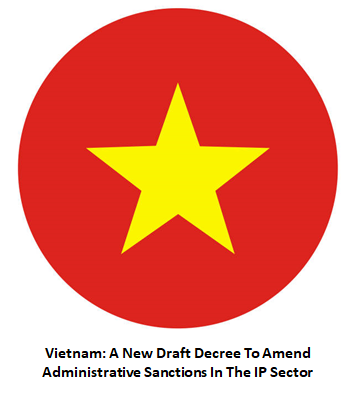The Ministry of Science and Technology (MOST) of Vietnam released a new draft decree in June 2021, amending many provisions of the government’s Decree No. 99/2013/ND-CP on the sanctioning of administrative violations in industrial property, which was issued on August 29, 2013. (the “Draft Decree”).
The Draft Decree aims to answer practitioners’ questions about how to implement the legislation and to make the enforcement of administrative sanctions in industrial property more effective. The Draft Decree, along with more than 30 other decrees, is part of the government’s overall strategy to guarantee that all relevant legislation is comply with the amended Law on Administrative Violations (passed on November 13, 2020) when it takes effect on January 1, 2022.
The Draft Decree’s Major Changes
The most noticeable change in the Draft Decree is the addition of export to the list of activities subject to administrative sanctions if products infringe on industrial property rights (“IPR”). Due to a lack of regulations in the past, enforcement authorities were often hesitant to handle exported products. MOST’s inclusion is in conjunction with Section 74 of the 2014 Law on Customs, which allows IPR holders to request inspection and monitoring of exported products that show signs of IPR violation, as well as a temporary suspension of customs procedures.
The removal of cross-border transit from all categories of administrative sanctions is another adjustment effected by the Customs Law (Article 73), which prohibits the suspension of customs procedures for transited goods.
Only if deliberate and serious violations are committed during the manufacture, export, import, trade, transport, or storage for sale of goods bearing counterfeit marks or geographical indications will raw materials, materials, and means used to manufacture or trade infringing goods be confiscated, according to the Draft Decree. Other than that, when the relevant infringing products are forcefully placed to noncommercial use, re-exported, or destroyed, state authorities may no longer force the additional noncommercial use, re-export, or destruction of such materials.
In several other respects, the Draft Decree changes the scope of sanctions. MOST, for example, has shortened the two-year limitation period for imposing administrative sanctions for IPR violations and specified the trigger dates in particular cases. While the Draft Decree clarifies and restricts the ability to apply supplementary sanctions and remedies across all categories, the language remains unclear as to the nature and severity of the violation that would trigger these measures.
The Draft Decree, on the other hand, increases the seizure authority in many provisions. The authorities can only confiscate material evidence and methods utilized in the commission of administrative violations if the overall value of such materials does not exceed the fine amount imposed for the violation under current legislation. The total value of confiscated materials under the Draft Decree could be up to twice the fine amount.
Some Items Were Noticeably Left Unchanged
While the Draft Decree has made substantial attempts to clarify provisions on the form and scope of sanctions, it mainly keeps the same provisions on how sanctions for administrative IPR violations are handled. The majority of the governmental agencies and personnel who have the authority to issue sanctions have not changed. The Market Surveillance Department’s role is still restricted to dealing with counterfeit products and geographical indications, as well as a few other violations such as unfair competition, but solely in domestic commerce and transportation of goods.
Most notably, the Draft Decree maintains the provision of the temporary suspension of settlement of disputes while a request for invalidation of an IP subject such as a trademark or patent is pending. Under current law, if an adverse party files a request for invalidation, the authority can request that the case be temporarily suspended until the IP Office makes the final verdict on the invalidation. This is a critical issue, especially as violators frequently use this regulation to continue infringing activity while avoiding sanctions.
You can find the list of Vietnam IP Firms here.

